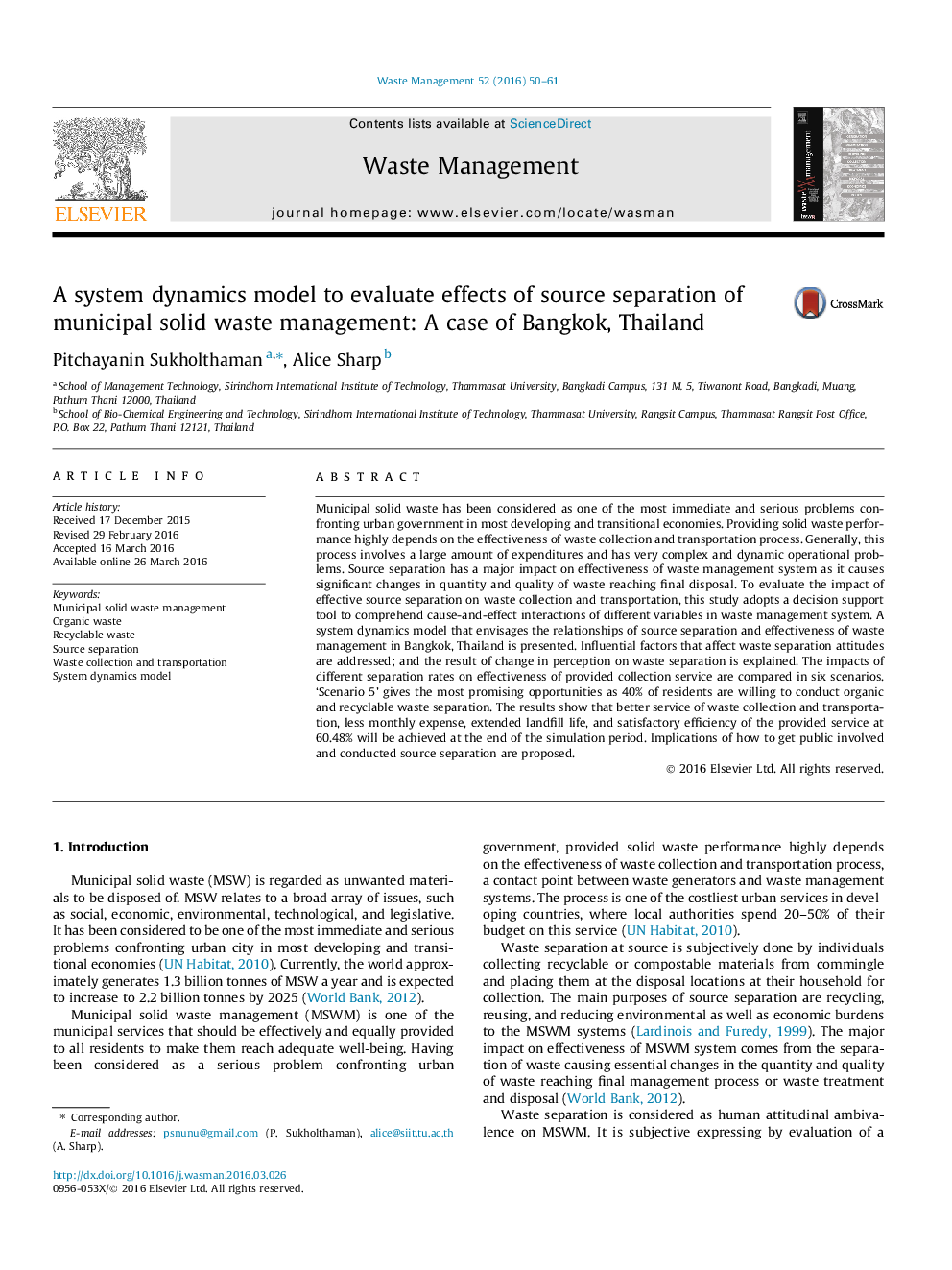| Article ID | Journal | Published Year | Pages | File Type |
|---|---|---|---|---|
| 4471226 | Waste Management | 2016 | 12 Pages |
•Influential variables for MSW collection and transportation are identified.•Impacts of source separation on effectiveness of waste collection are presented.•Strategic plans that encourage residents to do source separation are proposed.•Dynamic effects of source separation on MSW collection in Bangkok are analyzed.•Six scenarios show dynamic behavior of related variables in a 120-month period.
Municipal solid waste has been considered as one of the most immediate and serious problems confronting urban government in most developing and transitional economies. Providing solid waste performance highly depends on the effectiveness of waste collection and transportation process. Generally, this process involves a large amount of expenditures and has very complex and dynamic operational problems. Source separation has a major impact on effectiveness of waste management system as it causes significant changes in quantity and quality of waste reaching final disposal. To evaluate the impact of effective source separation on waste collection and transportation, this study adopts a decision support tool to comprehend cause-and-effect interactions of different variables in waste management system. A system dynamics model that envisages the relationships of source separation and effectiveness of waste management in Bangkok, Thailand is presented. Influential factors that affect waste separation attitudes are addressed; and the result of change in perception on waste separation is explained. The impacts of different separation rates on effectiveness of provided collection service are compared in six scenarios. ‘Scenario 5’ gives the most promising opportunities as 40% of residents are willing to conduct organic and recyclable waste separation. The results show that better service of waste collection and transportation, less monthly expense, extended landfill life, and satisfactory efficiency of the provided service at 60.48% will be achieved at the end of the simulation period. Implications of how to get public involved and conducted source separation are proposed.
